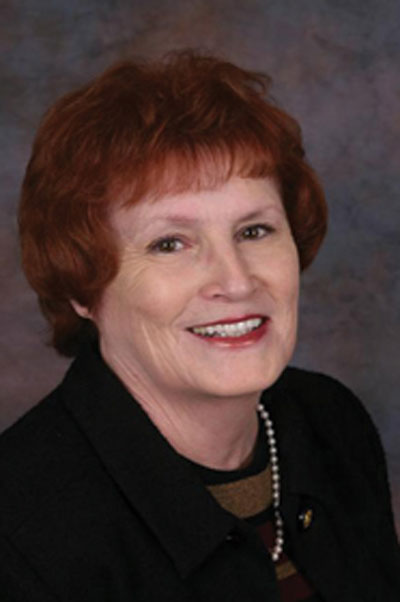
Leslie Benmark
Six Sigma Black Belt for DuPont (retired)
Education
- BS 1967, Industrial Engineering, the University of Tennessee, Knoxville
- MS 1970, Industrial Engineering, the University of Tennessee, Knoxville
- PhD 1976, Information Systems, Vanderbilt University
- JD 1984, the University of Delaware
Leslie Benmark has enjoyed a long and successful career as an engineer and corporate leader in public service since graduating from the University of Tennessee.
She worked for 37 years with the DuPont Company in Old Hickory, Tennessee, and at its corporate headquarters in Wilmington, Delaware. As Six Sigma Black Belt for DuPont, Benmark was responsible for identifying and implementing customer satisfaction and productivity improvement projects. Prior to the Six Sigma assignment, she was the IT&S corporate quality manager, leading managing processes between DuPont and its IT Alliance partners, Computer Sciences Cooperation and Accenture.
Benmark’s other positions at both the corporate and plant levels included planning manager and executive consultant for the Global Services Business, supply chain systems manager, Dacron®/Qiana® financial business manager, plant planning and cost supervisor, plant industrial engineering supervisor, plant engineering design supervisor, systems analysis supervisor, and computer systems analyst.
Benmark was born in Illinois during World War II. Her family moved around following the war, finally settling in Lawrenceburg, Tennessee, where she lived until starting college at UT. She received numerous job offers after receiving her bachelor’s degree in 1967, and accepted a position at the Monsanto Company in St. Louis, Missouri.
When she became engaged to her future husband, Gary Benmark, the couple moved back to Tennessee. She had received an offer from the DuPont Company at the manufacturing facility near Nashville after graduation. When she inquired with the company to see if the job was still open, she found that it was. She earned her master’s degree while working there, and later a PhD from Vanderbilt.
Benmark was inducted into the elite National Academy of Engineering (NAE) in 1993, in two areas: Industrial, Manufacturing, and Operational Systems Engineering and Computer Science and Engineering. At the time that she was inducted into NAE, there were only twenty-seven female members. In comparison, the membership in 2015 included one hundred and twenty-eight women.
Benmark was also the president of the Accreditation Board for Engineering and Technology (ABET) in 1990-91, the first female president of this organization in sixty-six years. She was also the Directorate for Engineering Advisory and Chair for Presidential Faculty Fellow selection and the Engineering Education Coalition Selection Panels for the National Science Foundation; she served on the Manufacturing Studies Board for the National Research Council; was a member of the US delegation of the US Council for International Engineering Practice, charged with defining inter-country engineering professional licensing requirements between the US, Canada, and Mexico; and served as the Group Vice President for Professional Enhancement, on the board of directors, and in many other positions with the Institute for Industrial Engineers.
In addition to her work and activities as a professional engineer, Benmark has also been extensively involved with the Civitan organization, including serving a term on the International Board.